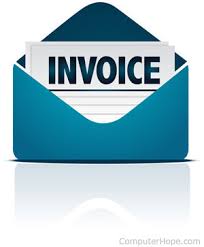- Home
- Questions and Answers
- Terms of Invoice
How To Make Square Invoices Bookkeeping Question
by Fannie Toner
(Reno, NV USA)
I am a very small business - a one-person secretarial service, and I've never had the facility -- nor a pressing need -- to accept credit cards (though I've been in business since 1978).
However, over the past year, I've had an increasing request for this service. I have signed up with Square, Inc. to use their square device with my iPad for credit card transactions.
I keep my own records, and bookkeeping is the one area of office expertise which I do not possess. My records are simple:
I create an invoice for every single transaction; I record every dime I make; I record every business expense.
My one quandary with the Square is how to properly tailor and record my invoices, considering the caveat in Square's Terms and Conditions: "Network Rules currently prohibit you from (a) assessing a surcharge for the use of a Card in connection with any transaction..."
I'm not sure how to easily handle these transactions transparently and report my income and expenses accurately.
If I increase the invoice amount by 2.75% on those people who charge, I don't know what the rationale would be, since I am prohibited by the terms indicated above to tell the truth, which would be that it is a cost passed on to the customer for the use of the credit card.
One solution I thought of was to increase my hourly rate (now, $32.50/hr) one dollar to $33.50 an hour. I would, however, keep my minimum charge at $15.00/hr; and as a Notary, I'm prohibited by the rules of my commission from increasing my fee, which is generally $5.00 a signature.
I calculated the extra dollar an hour on my hourly rate would just about cover the extra cost of doing the credit card business.
(Remembering that not all my customers will pay by credit card, but all excepting minimum fee invoices and notarial customers will pay the extra $1.00 hourly rate.)
In this case, I would indicate as a receipt the actual money which square deposits into my bank account (my invoice less 2.75%), and I would simply not report the money Square receives as a business expense, since it would not be paid out of my business income.
I want to be honest; I want to handle my records in a way that will be acceptable to the IRS; and I want to handle the matter in a way that will not be disadvantageous to me - I already live on a very marginal income.
I have already asked a website that offers bookkeeping advice and am hoping for an answer from them. I would be happy for your advice on this as well.
Thank you. Fannie L. Toner
Comments for How To Make Square Invoices Bookkeeping Question
|
||
|
||
Invoice and Expense to/from Supplier
by Nat
How do I record in the books an Invoice to a Customer and then an Expense from the Customer? i.e., we have deducted the invoice amount from the expense and paid the difference. How do I record this on the books?
Comments for Invoice and Expense to/from Supplier
|
||
|
||
Invoice Discounts
If you offer a customer a 1%10 Net 30 on an invoice and they are paying and invoice within terms but owe older invoices do the qualify to get that discount or is that an unearned discount?
Hello,
Thank you for your inquiry.
Typically payments received from customers with an outstanding balance are applied to the older invoice first. In which case, the discount from the current invoice would not apply unless all outstanding balances were being paid at the same time.
Invoice vs Credit Ratio
by Yabbeju
(India)
Hi Team,
I am from Accounts Payable Team, I want to know, do we have any best ratio or what is the best ratio for Credit note vs Invoice to maintain with our best customers.
When Vendor sending their invoices and Credit notes for payment, monthly on average what is ration they need to keep or we need to keep for this inflow!
Please let me know your valid answer, if we have anything like this!!
Thank you!
Yabbeju G
Invoicing
When invoicing customers, do invoices need to be in sequence?
Hi,
Thank you for your question. Typically, invoices are done in sequential order. However, I don't believe it is a necessity as long as invoice numbers are not being duplicated.
Terms of Invoice
by ALFRED
(PARAGOULD, AR)
Please explain an invoice that has under terms: net 10.
If an invoice is received with the above terms, exactly what does this mean? Does it just mean than you have 10 days to pay the full amount? Or does this indicate a disscount for the buyer?
Please subscribe to my monthly newsletter, Bookkeeping Basics E-zine. It tells you every month about the new information that I have added, including some great tips and advice from myself and other Bookkeeping Basics readers.
Like Bookkeeping-Basics.net?
- Home
- Questions and Answers
- Terms of Invoice













